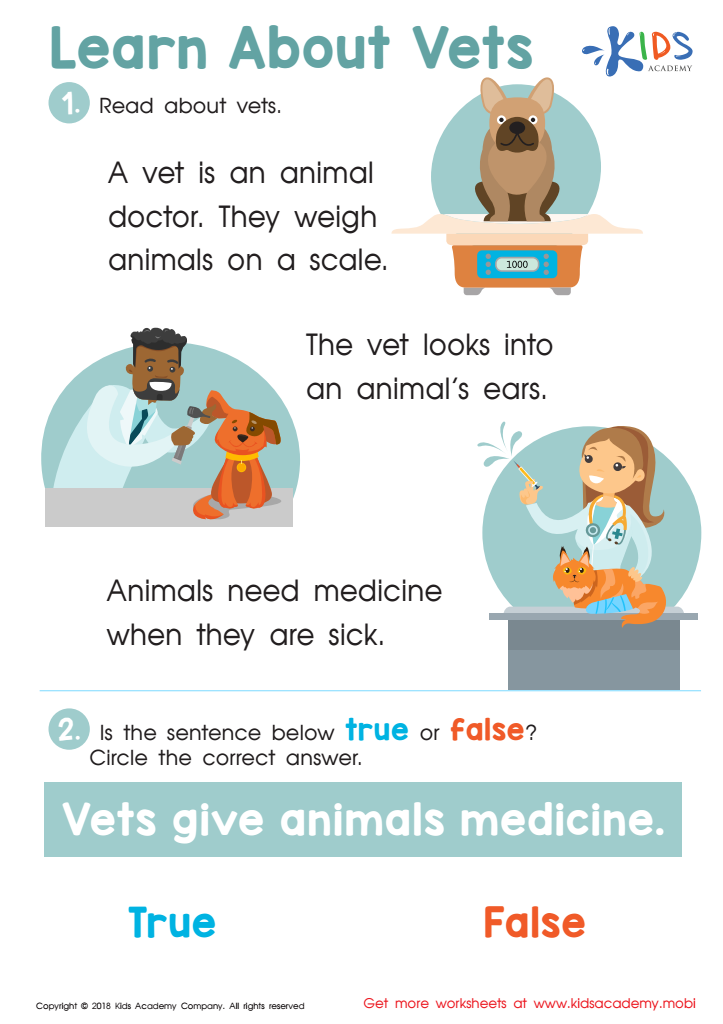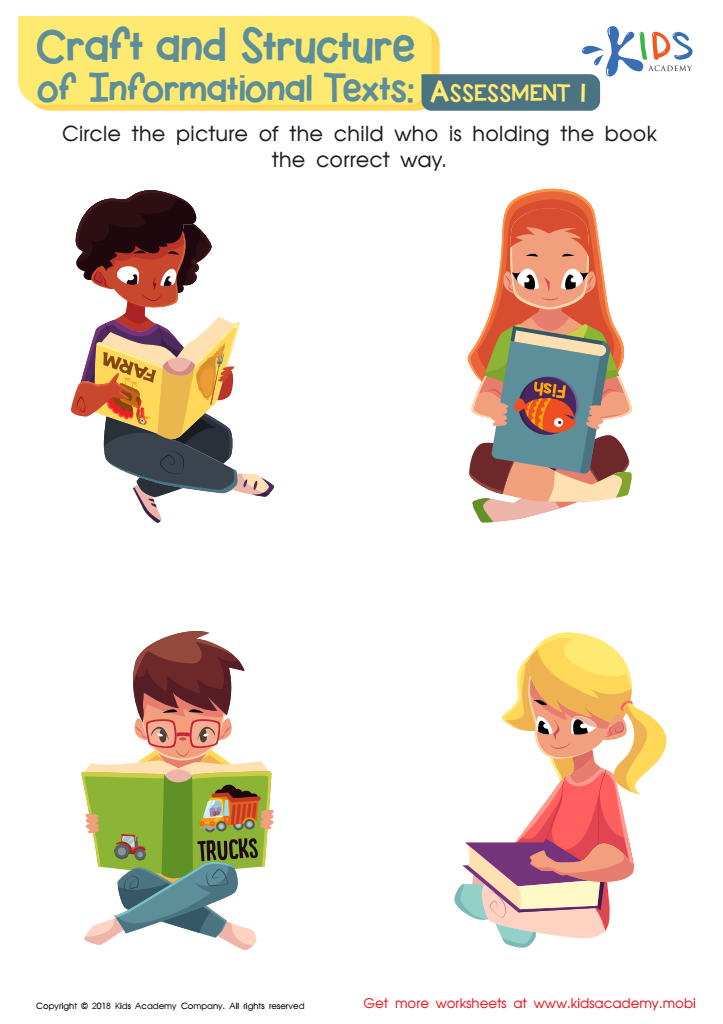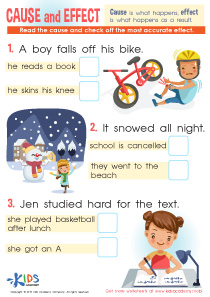Vocabulary development Normal Reading Non-Fiction Worksheets for Ages 4-6
3 filtered results
-
From - To
Explore our engaging "Vocabulary Development Normal Reading Non-Fiction Worksheets" tailored for ages 4-6. These worksheets are designed to enhance young learners’ vocabulary through captivating non-fiction texts that spark curiosity about the world around them. Each worksheet provides age-appropriate content, helping children connect words with real-life contexts while fostering a love for reading. Interactive activities encourage critical thinking and comprehension skills, making learning enjoyable. Perfect for parents and educators seeking reliable resources, these worksheets support early literacy development and prepare children for future academic success. Start nurturing your child’s vocabulary today with our delightful and educational non-fiction reading worksheets!


The Dentist Worksheet


Learn About Vets Worksheet


Craft and Structure of Informational Texts: Assessment 1 Worksheet
Vocabulary development is crucial for children aged 4-6 as it lays the foundation for their overall literacy and comprehension skills. At this stage, children are deepening their understanding of the world around them, and encountering non-fiction materials helps expand their vocabulary through exposure to new concepts, terms, and factual information. When parents and teachers prioritize vocabulary development in non-fiction reading, they empower children to make connections between words and their meanings, enhancing critical thinking and retention of knowledge.
Additionally, a robust vocabulary is linked to better reading comprehension, allowing children to grasp more complex ideas as they progress in their education. Engaging with non-fiction early on instills curiosity and a love of learning, which is essential for their academic journey. Literacy skills acquired in these formative years ultimately contribute to a child’s communication skills and self-confidence.
Moreover, vocabulary development nurtures social-emotional skills by equipping children to express themselves more effectively and engage in discussions about their interests. Consequently, fostering vocabulary growth through non-fiction reading not only prepares children for academic success but also supports their social interactions and personal development, making it vital for parents and teachers to actively encourage and facilitate this process.

 Assign to My Students
Assign to My Students
















